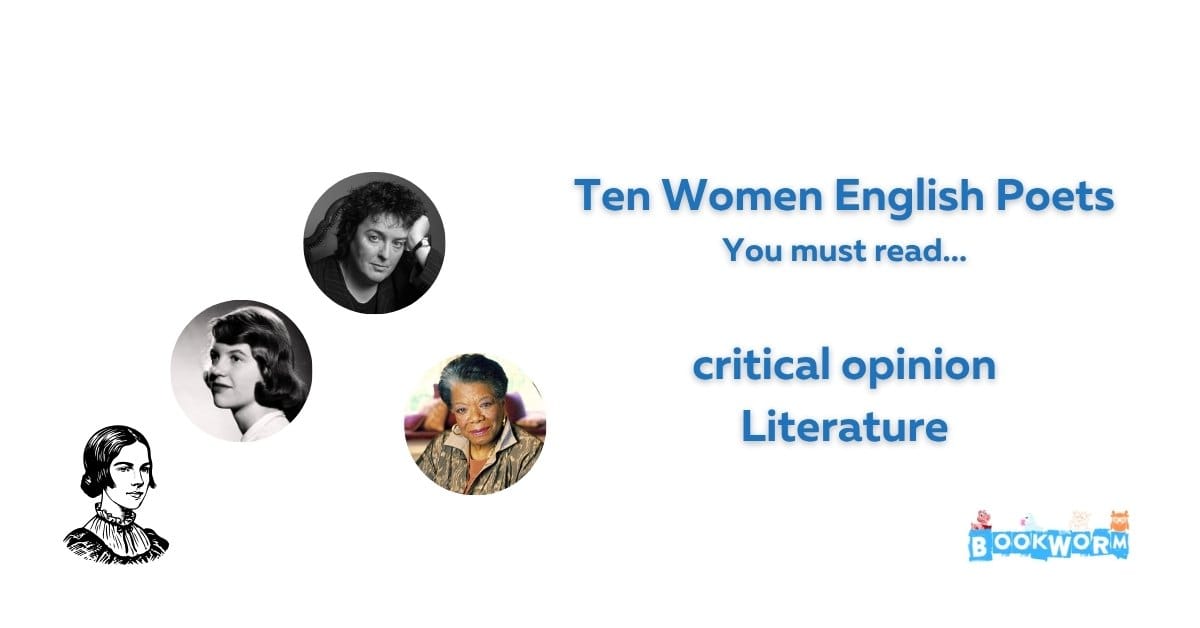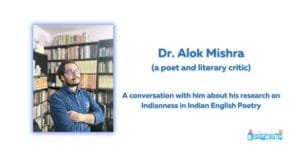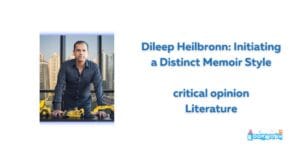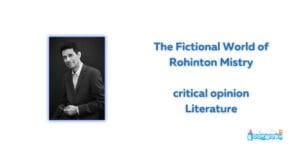The history of English poetry is often narrated through the resounding voices of Milton, Shakespeare, Wordsworth, Eliot, and other towering male figures. Yet, to trace the contours of English poetry without pausing to listen to the resonant voices of its women poets would be to render that history incomplete. Women poets have not only contributed immensely to the evolution of poetic forms and themes but have also brought forth a depth of experience rooted in gendered identity, social resistance, introspection, and creativity that is unique in its sensibility. From the fiery defiance of the 17th century to the quiet inwardness of modern expression, their verses carry centuries of wisdom, sorrow, joy, and rebellion. This article presents ten women poets writing in English who deserve to be read not as exceptions, but as essential figures in the literary canon.
1. Emily Dickinson (1830–1886)
Emily Dickinson, the reclusive genius of American poetry, wrote nearly 1,800 poems, most of which were unpublished during her lifetime. Her innovative style—characterised by unconventional punctuation, slant rhyme, and philosophical conciseness—redefined lyrical poetry. Her lines are introspective yet cosmic in scope. In poems like “Because I could not stop for Death” and “I’m Nobody! Who are you?” Dickinson examines themes of mortality, identity, and spiritual longing. Her influence on modern poetry is immense, with many critics hailing her as the mother of American poetic modernism. Reading Dickinson is akin to entering a private, intense world of thought that defies convention.
2. Sylvia Plath (1932–1963)
Sylvia Plath’s poetic voice is often described as electric—alive with rage, tenderness, despair, and mythic symbolism. A master of confessional poetry, her posthumously published collection Ariel reveals a powerful grappling with selfhood, motherhood, and mental illness. In “Lady Lazarus,” “Daddy,” and “Tulips,” Plath’s fierce, unapologetic diction and metaphoric control lay bare the conflicts of femininity and autonomy. Her poetry is intensely autobiographical but elevated to archetype, touching a universal nerve. Her tragic biography and literary brilliance ensure that she remains one of the most intensely studied poets in the English language.
3. Elizabeth Barrett Browning (1806–1861)
Long before women were publicly celebrated as poets, Elizabeth Barrett Browning commanded literary fame. Her Sonnets from the Portuguese remains one of the finest sonnet sequences in the English language, filled with lyrical beauty and emotional gravity. A socially conscious poet, she also addressed political themes—child labour, slavery, and women’s rights—well ahead of her time. In “The Cry of the Children,” she combined formal grace with impassioned critique. She not only influenced her husband, Robert Browning, but also inspired a generation of women writers to pursue serious literary careers.
4. Carol Ann Duffy (1955– )
As the first woman Poet Laureate of the United Kingdom (2009–2019), Carol Ann Duffy brought contemporary concerns, gender politics, and accessible lyricism to mainstream poetry. Her collections, such as The World’s Wife and Mean Time, examine identity, love, and historical revisionism through a feminist lens. In poems like “Mrs Midas” or “Valentine,” Duffy reclaims the poetic voice for women often marginalised in literary history. Her language is simultaneously profound and straightforward, appealing to both scholars and general readers alike. Duffy’s work reinvigorates the poetic tradition by blending modern sensibility with classical form.
5. Kamala Das (1934–2009)
One of India’s foremost confessional poets writing in English, Kamala Das (also known as Madhavikutty) infused her poetry with emotional honesty, sensuality, and autobiographical depth. Her first collection, Summer in Calcutta, was groundbreaking for its time, as it dealt candidly with female desire, alienation, and cultural dislocation. In poems like “An Introduction” and “The Old Playhouse,” Das challenges patriarchal norms with unapologetic boldness. Writing in both Malayalam and English, she brought Indian womanhood to the global literary stage and remains a cornerstone in the field of postcolonial and feminist poetry.
6. Christina Rossetti (1830–1894)
A key figure in the Pre-Raphaelite movement, Christina Rossetti’s poetry is rich in symbolism, religious devotion, and emotional subtlety. Her most famous poem, “Goblin Market,” explores themes of temptation, sisterhood, and sacrifice with mythic and moral undertones. Unlike her brother Dante Gabriel Rossetti, Christina’s works often resist romanticisation, instead probing the spiritual and existential challenges of Victorian womanhood. Her lyricism, combined with narrative skill and theological depth, situates her as a complex and enduring voice in English poetry.
7. Audre Lorde (1934–1992)
Though often identified as an African American poet and activist, Audre Lorde’s contributions to English poetry transcend national boundaries. A self-described “Black, lesbian, mother, warrior, poet,” Lorde’s work is a blazing intersection of identity politics and lyrical power. Her collections, such as The Black Unicorn and Coal, challenge systems of racial and gender oppression while celebrating black womanhood and erotic empowerment. In her poetry, the personal is always political, and each word is a declaration of resistance and affirmation. She remains a vital voice for readers seeking poetry that is both visceral and visionary.
8. Anne Sexton (1928–1974)
A contemporary of Sylvia Plath, Anne Sexton used poetry as a form of therapy and rebellion. Her collection Live or Die, which won the Pulitzer Prize, is a raw confrontation with mental illness, womanhood, and societal expectations. In works such as “Her Kind” and “The Truth the Dead Know,” Sexton uses myth, confession, and irony to map the psychic terrain of female experience. Her stylistic range and emotional openness broke significant ground for poets exploring taboo subjects. Sexton made it possible for poetry to speak candidly of things once considered unpoetic.
9. Adrienne Rich (1929–2012)
Adrienne Rich was not only a gifted poet but also a forceful intellectual voice in feminist and political discourse. From the early formalism of A Change of World to the radical poetics of Diving into the Wreck and The Dream of a Common Language, Rich evolved into one of the most influential poets of the 20th century. Her poems explore themes of identity, power, and language as instruments of both oppression and liberation. “Aunt Jennifer’s Tigers” and “Planetarium” stand out for their metaphorical resonance and political depth. Rich’s poetry demands that readers think, act, and engage.
10. Maya Angelou (1928–2014)
Though widely celebrated for her memoir, I Know Why the Caged Bird Sings, Maya Angelou was a formidable poet whose work echoed themes of resilience, dignity, and hope. Her most iconic poem, “Still I Rise,” has become a global anthem of defiance against racism and sexism. Angelou’s voice—lyrical, direct, and deeply human—bridges the gap between spoken word and written verse. Her poetry blends autobiographical elements with historical consciousness, making her an accessible yet profound figure for readers across generations. Angelou’s work exemplifies how poetry can be both a personal sanctuary and a public clarion call.
Each of these poets offers a distinct entry point into the emotional and intellectual landscape of women’s literature. What unites them is not merely their gender, but the integrity, originality, and audacity with which they wielded language to name their worlds. In an age where literary canons are increasingly re-examined and democratised, reading these women poets is not only an act of aesthetic engagement but also of critical awareness and cultural respect. They are not alternatives to male poets, but essentials in their right—voices that shaped, challenged, and redefined the scope of English poetry. To read them is to engage with the multiple rhythms of human experience, where the personal is often political, and the poetic is profoundly honest.
Alka for BookWorm




